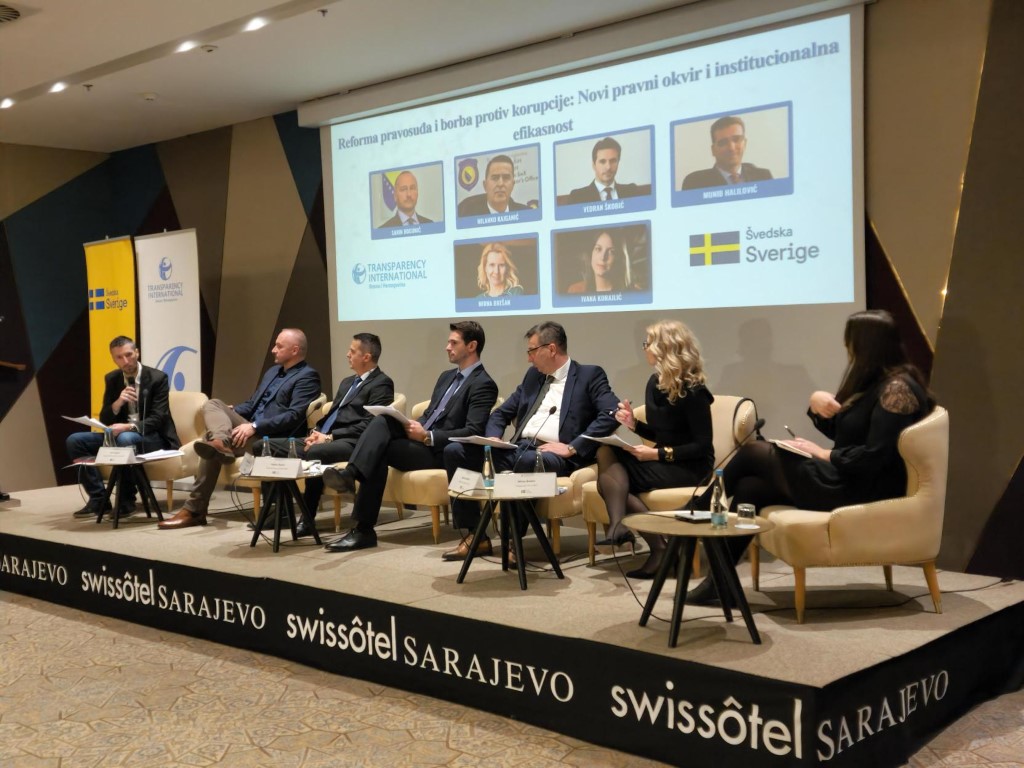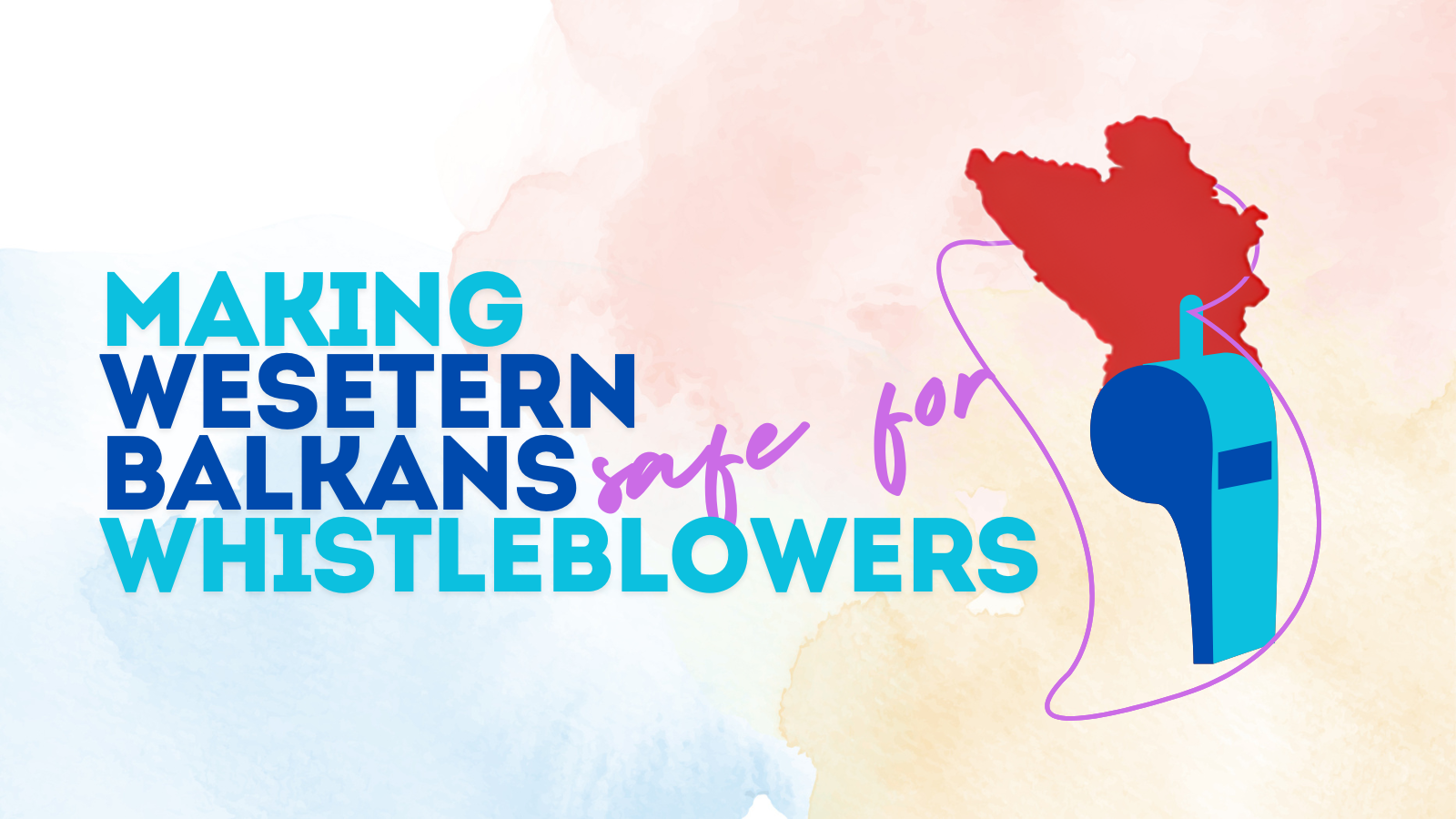Number of Corruption Indictments Lowest in the Past Four Years: Ensure Judicial Independence and Prevent Further Pressure
Sarajevo, March 18, 2025 – The judiciary in Bosnia and Herzegovina continues to yield to corruption – sentences are dominated by suspended penalties, investigations...

Sarajevo, March 18, 2025 – The judiciary in Bosnia and Herzegovina continues to yield to corruption – sentences are dominated by suspended penalties, investigations are being dropped, acquittals are becoming more frequent, and the number of convictions for high-level corruption has decreased compared to the previous year. In 2024, some prosecutor’s offices did not issue a single indictment for high-level corruption crimes, and the lenient penal policy combined with a declining number of indictments confirms the institutions’ alarming unwillingness to seriously tackle corruption.
Of the 194 corruption convictions, nearly half (46%) resulted in suspended sentences, and in 2024 there were 130 final convictions, almost 8% fewer than in 2023. Meanwhile, courts in Bosnia and Herzegovina issued 20% more acquittals in 2024 compared to the previous year (26 vs. 31), despite BiH being ranked the second most corrupt country in Europe and scoring its worst result since 2012 in the Corruption Perceptions Index (CPI) by Transparency International.
One of the key factors in the widespread presence of corruption is the penal policy, which not only lacks severity but shows a trend toward further leniency. The share of fines in final judgments increased from 4.7% to 8.4%, while corruption offences are still most commonly sanctioned with suspended sentences, which accounted for 51.5% of final convictions in 2024.
Data published by TI BiH on the Interactive Map of Corruption Prosecution show that BiH prosecutors have also made little progress. In 2024, they issued 699 decisions not to conduct investigations – 6.2% more than the previous year – while the number of newly opened corruption investigations decreased. Of 262 resolved investigations, 98 were terminated, meaning that one in three corruption investigations ended with dismissal. The number of initiated investigations for high-level corruption dropped by 15%, and the number of indictments filed for corruption offences reached a four-year low.
Notably, the Cantonal Prosecutor’s Offices in Posavina Canton, Canton 10, West Herzegovina Canton, Goražde Canton, and the Brčko District Prosecutor’s Office issued no indictments for high-level corruption in 2024. This highlights the urgent need to establish operational conditions for the Special Department of the Federal Prosecutor’s Office to combat corruption, organized crime, and inter-cantonal crime.
TI BiH, together with the Balkan Investigative Reporting Network (BIRN BiH), conducted a study on the transparency of judicial institutions. The findings show that courts and prosecutors responded within legal deadlines to only 40% of freedom of information (FOI) requests submitted by citizens. One-third of citizen requests (35%) were either ignored or rejected. In contrast, TI BiH received complete responses in 72.3% of cases, suggesting that institutions discriminate based on who is submitting the request, assuming citizens lack the means or motivation to pursue appeals and enforce their legal rights.
Some improvements were observed: the number of prosecutor’s offices publishing full indictments rose from 3 in 2022 to 11 in 2023. However, given that 45% of prosecutor’s offices still do not publish indictments and that citizens’ FOI requests are not treated equally, there remains significant room to improve judicial transparency.
The event also served as an opportunity to discuss the adoption of the new Law on the High Judicial and Prosecutorial Council (HJPC), with an emphasis on ensuring judicial independence from the executive. TI BiH reiterated its earlier proposals for clear criteria for selecting HJPC members, prioritizing qualifications over ethnic background, preventing conflicts of interest through stricter provisions and sanctions, and establishing effective asset verification mechanisms, including mandatory disclosure of close relatives’ assets.
TI BiH has also long advocated for defining clear criteria for appointing commission members who evaluate and test candidates for judicial positions, in order to prevent subjective influence and manipulation. The Venice Commission, in its Opinion on the draft HJPC law, endorsed many of TI BiH’s recommendations, stressing that competence should take precedence over ethnicity and that objective, measurable criteria should guide the selection of candidates for key judicial positions.
Get involved
Stay tuned
Subscribe to our newsletter and receive periodic notifications about our, announcements, calls and activities via email.
Don't miss it
If you want to receive our announcements immediately after the publication, leave your e-mail address in the field below.



